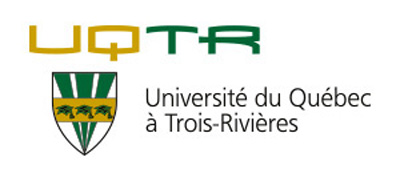Related projects
Discover more projects across a range of sectors and discipline — from AI to cleantech to social innovation.
Mitacs brings innovation to more people in more places across Canada and around the world.
Learn MoreWe work closely with businesses, researchers, and governments to create new pathways to innovation.
Learn MoreNo matter the size of your budget or scope of your research, Mitacs can help you turn ideas into impact.
Learn MoreThe Mitacs Entrepreneur Awards and the Mitacs Awards celebrate inspiring entrepreneurs and innovators who are galvanizing cutting-edge research across Canada.
Learn MoreDiscover the people, the ideas, the projects, and the partnerships that are making news, and creating meaningful impact across the Canadian innovation ecosystem.
Learn MoreThe Xenotropic Murine Leukemia Related-Virus retrovirus (XMRV) is a gammaretrovirus of mouse origin that can infect humans and a broad range of animals. The virus was first identified in a subset and prostate cancer tumors and more recently in patients suffering from chronic fatigue syndrome (CFS). Studies estimate that between 3% and 10% of the general population may also be infected with the virus. The association of XMRV with both prostate cancer and CFS has recently prompted the Canadian Blood Services to turn down blood donations by CFS patients. The mode of transmission and the biological reservoir for this virus are currently unknown. Because XMRV is a xenotropic virus there is a firm possibility of a bidirectional zoonotic transmission between animals and humans. Despite having several layers of immune (adaptive, innate and intrinsic) defense mechanisms against retroviruses, most mammals are susceptible to XMRV infection. This research project seeks to identify the factors that allow for cross-species transmission of the virus by specifically looking into how the virus overcomes restriction by the various layers of the host’s immune system.
The student will work in close collaboration and under the supervision of technical staff and graduate students. The student will perform various experiments that employ techniques in molecular biology, tissue culture, cell biology and cell imaging. It will be expected that the student keep a precise and detailed account of all experiments and results in a lab book.
Dr. Marc-Andre Langlois
Aakanksha Jain
Medicine
Life sciences
University of Ottawa
Globalink Research Internship
Discover more projects across a range of sectors and discipline — from AI to cleantech to social innovation.
Find the perfect opportunity to put your academic skills and knowledge into practice!
Find ProjectsThe strong support from governments across Canada, international partners, universities, colleges, companies, and community organizations has enabled Mitacs to focus on the core idea that talent and partnerships power innovation — and innovation creates a better future.













































































































































































































































































































